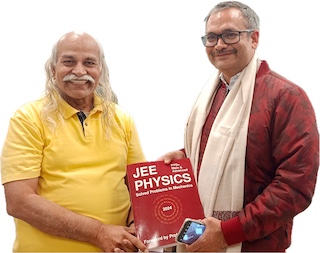Free expansion of a gas
Consider a rigid container which is thermally insulated. It is divided into two compartments separated by a valve which is initially closed. One compartment of volume $V_1$ contains a gas, the other compartment is empty. The initial temperature of the system is $T_1$. The valve is now opened and the gas is free to expand so as to fill entire container of volume $V_2$. What is the temperature of the gas after the final equilibrium state is reached?
The free expansion is adiabatic because container is thermally insulated i.e., $\Delta Q=0$. Also, the system does no work in the process because other compartment is empty i.e., $W=0$. Thus, by first law of thermodynamics, the internal energy of the system remains constant i.e., $\Delta U=0$.
\begin{align} U(V_1,T_1)=U(V_2,T_2) \end{align}The internal energy of an ideal gas depends on temperature alone. Thus, temperature of an ideal gas does not change in free expansion.
The temperature of real gases usually decrease in free expansion. $U\text{-}T$ curve (at constant volume) or $V\text{-}T$ curve (at constant $U$) are used to determine decrease in temperature.
Problem
Consider free expansion of a van der Waals gas. Prove that \begin{align} T_2-T_1=-\frac{a}{C_v}\left(\frac{1}{V_1}-\frac{1}{V_2}\right) \end{align}
